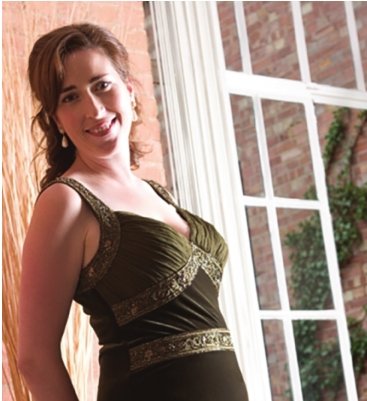
Bach, Handel, Vivaldi return life in baroque choral blowout
Once every year, the Lansing Symphony joins forces with the 250-voice massed MSU choral groups. It’s a heavy lift, but there’s nothing like it on the musical calendar. Orchestral jets give aerodynamic lift to weighty words, and the heavens seem within reach.
MSU graduate and sublime mezzo-soprano Meg Bragle loves concerts like Friday’s, with three masterpieces by Baroque masters, culminating in Vivaldi’s joyous “Gloria.”
Bragle, one of Fridays’ three guest soloists, can reach up your spine with her silvery soprano and turn your amygdala inside out, but she isn’t interested in diva-hood. She prefers to be an artist among equals, singing with the greatest baroque and early music groups in the world, from the American Bach Soloists to the Orpheus Chamber Orchestra.
“It gives me great joy to be in the mix,” she said. “The singers are part of the ensemble, both instrumentally and vocally, and that’s integral to baroque music.”
Adding her vibrations to the primal ring of Monteverdi’s “Vespers,” Bragle’s first Baroque solo turn, changed her life.
“Whoa, it just blew my brain apart,” she said. “Realizing how the words colored the music, it was like an explosion.”
Bragle trained as a Suzuki violinist when she was barely out of her zygote days, but she didn’t become a serious singer until her undergrad years at the University of Michigan. She studied choral conducting at MSU with retired choral director Charles Smith.
As a student, Bragle sang her share of romantic, 19th-century opera, but her instrumental training made her more suited to the baroque style, where instruments are voices, voices are instruments and all the gears mesh like celestial clockwork.
“Singers were expected to participate as full members of the process rather than plug-ins at the end, and I loved that,” she said. “I loved being part of a process from the beginning.”
She loved the scholarly, un-diva-like ways of what she calls “the early music crowd.” Bragle’s concerts and recordings have been acclaimed around the world. In the UK, she sang with the dean of Bach conductors, John Eliot Gardiner and the Monteverdi Chorus. She sang Bach in Bach’s own home town of Leipzig, Germany. A BBC Music critic called her voice “spine-tingling.” (Google Meg Bragle to hear the piece that inspired the rave, the “Agnus Dei” from the Bach B-minor mass.)
But hers is a quiet stardom, compared to the glamor of grand opera. It’s hard to imagine Maria Callas getting excited about being “in the mix.”
“I don’t think she did, and that’s OK,” Bragle said. “[Her] style of opera is called bel canto, beautiful singing, for a reason. It’s about showcasing the voice as a soloist, a star vehicle. Pavarotti singing ‘Nessun dorma’ at his height was thrilling, but this is a different kind of thing.”
“I don’t think it’s better or worse. It’s just where I sit, for myself, and where my voice is best suited, in the realm of collaboration.”
MSU choral director David Rayl, who takes over Friday for LSO maestro Timothy Muffitt, wanted to mount a full-on celebration of Bach, Handel and Vivaldi, whom he called “the big three” of the Baroque.
The three mens’ lives and music are interconnected, like voices in a fugue.
“Handel and Bach grew up within a few miles of each other, and they had similar training — the typical training of a Kapellmeister,” Rayl said. Bach transcribed some of Vivaldi’s music and knew it well.
Handel was a devotee of Italian opera, linking him with Vivaldi, who was much better known in his day as an opera conductor than a composer of choral music.
A highlight of Friday’s concert is Handel’s seldom-performed “Foundling Hospital Anthem,” which includes the “Hallelujah Chorus” from “The Messiah.”
The festivities will begin with an orchestral showcase, the first of Bach’s famous Brandenburg concertos.
“I love his instrumental music and this is a really beautiful concerto,” Rayl said. “It’s got a couple of horns and bassoons so it’s got some interesting orchestral colors.”
The big question, of course, is: which one of the three would you have a beer with? “I’m not sure Bach would be very much fun,” Rayl said. (He didn’t mention Bach’s dour Lutheranism, but he was probably thinking about it.)
“I think — Handel.” Hallelujah, let’s have another growler.
Lansing Symphony Orchestra
David Rayl, conductor 8 p.m. Friday, Nov. 10 Wharton Center Cobb Great Hall $20-50 (517) 487-5001 lansingsymphony.org
Support City Pulse - Donate Today!
Comments
No comments on this item Please log in to comment by clicking here